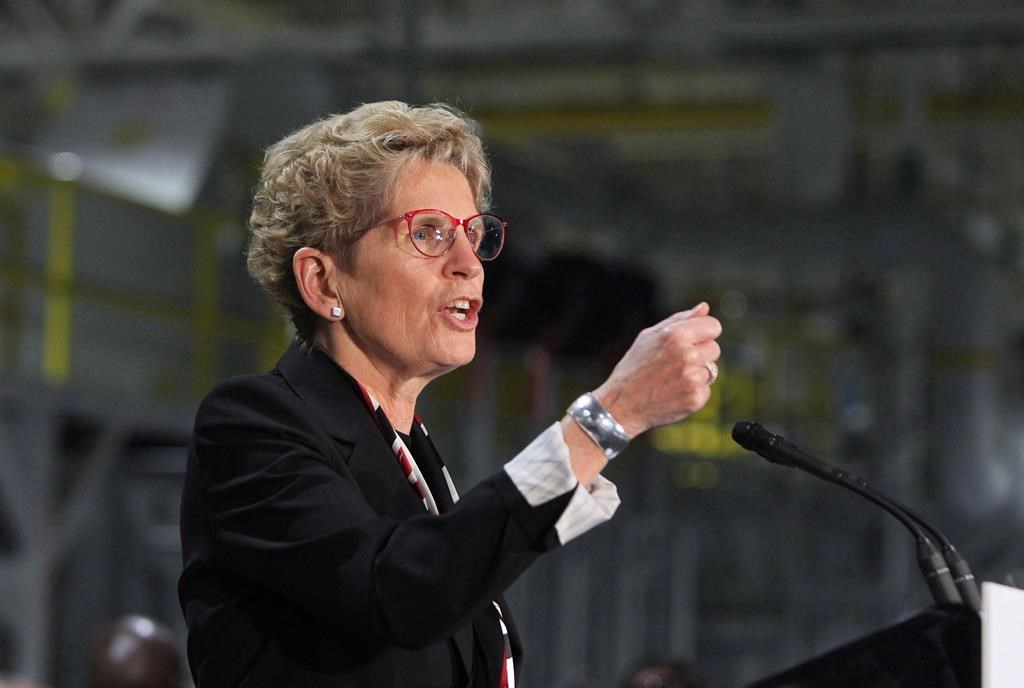Support strong Canadian climate journalism for 2025
A high-speed rail corridor between Toronto and Windsor, Ont., is in the works — an idea floated in Ontario for decades, but the premier says this time it's happening.
A government-commissioned report looking at the feasibility of such a project pegs the cost around $20 billion and suggests looking to the private sector for opportunities to partner on funding.
Preliminary design work and a $15-million environmental assessment are beginning, with an aim of full service in 2031.
Trains on the planned rail link would travel up to 250 kilometres per hour, which is expected to cut travel times between Toronto and Windsor from four hours to two.
Premier Kathleen Wynne said not only will it save people time, but it will serve as an economic driver along a corridor that is home to more than seven million people and over 60 per cent of Ontario's economic activity.
High-speed rail has been debated since the 1970s, with excuses that the country is too large, the population is too small, and it's not worth it, but it needs to happen now, Wynne said.
Lost opportunities
"We have lost opportunities as a province because we haven't had this line in place," she said Friday in London, Ont., a mid-point for the rail route.
"I get that there's going to be a robust conversation about how much it will cost — how much the project will cost, how much people will pay — we obviously are going to work to keep the costs down in every way possible, but we've got to move ahead. We've got to not let this be another lost moment. We've got to do it this time, folks."
The government says Ontario is the first province to undertake a "rail transformation" on this scale. A new public entity will be established to oversee the project.
In 2015, the government tapped a special adviser on high-speed rail to assess the possibility of such a project, and David Collenette concluded there is a business case for it.
It would alleviate pressure on the busy Highway 401, lessen the need for short-haul air flights and spur regional development, he wrote.
Collenette, a former federal transportation minister, recommended the first phase connect Toronto and London by 2025, then extend the line to Windsor in a second phase.
He looked at the possibility of a line operating mostly on a dedicated right-of-way with top speeds of 300 kilometres per hour, but found it would have been more expensive than a line operating on a mixed-use railway.




Comments